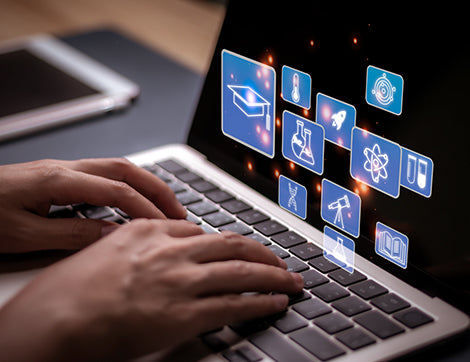In the rapidly evolving landscape of education, online learning has gained significant traction, revolutionising the way students acquire knowledge and skills. As technology continues to advance, innovative tools and approaches are shaping the future of e-learning, providing supportive resources to enhance academic success. In this article, we will explore a range of emerging innovations and trends that are transforming online education, along with examples that highlight their impact on students' learning experiences.
Online Homework Help Platforms:
Online homework help platforms have emerged as a valuable feature of online learning, providing students with access to tutors and subject matter experts. These platforms offer round-the-clock assistance, allowing students to submit their questions or problems and receive timely guidance. For example, platforms like SweetStudy cater to specific disciplines, such as nursing, offering specialised resources to support students in their academic journey.
Interactive Virtual Learning Environments:
Interactive virtual learning environments are revolutionising online studying by providing immersive and engaging experiences. Augmented Reality (AR) and Virtual Reality (VR) technologies enable students to simulate real-life scenarios, fostering hands-on learning. For instance, medical students can virtually dissect a human body, while chemistry students can conduct experiments in a virtual laboratory. These environments enhance understanding and retention, making learning more effective and enjoyable.
Mobile Learning and Microlearning:
The ubiquity of smartphones and tablets has led to the rise of mobile learning, allowing students to access instructional materials anytime and anywhere. Mobile learning is particularly suited for microlearning, which presents knowledge in bite-sized chunks. Students can review quick tests or notes on their mobile devices during short breaks or while on the go. Many educational platforms and institutions have developed mobile applications or optimised their websites for mobile devices, providing seamless access to learning materials.
Adaptive Learning Platforms:
Adaptive learning platforms leverage artificial intelligence (AI) algorithms to personalise the learning experience for each student. These platforms analyse students' performance and preferences to provide customised content, exercises, and assessments. Real-time feedback and progress tracking enable students and educators to monitor their performance and make data-driven adjustments. By tailoring the learning process to individual needs, adaptive learning platforms maximise learning outcomes.
Gamification of Learning:
Gamification incorporates game elements into the learning process, enhancing motivation and engagement. Educational games and interactive quizzes make learning enjoyable and foster a sense of competition. Gamification promotes problem-solving skills, critical thinking, and collaboration, as students work together to overcome challenges. Examples include online platforms that offer game-based learning experiences, virtual competitions, and reward systems. The impact of gamification on education has been well-documented, with significant improvements in student performance observed.
Collaborative Learning Communities:
Collaborative learning communities connect students, educators, and experts from around the world, fostering knowledge-sharing, discussions, and collaborative projects. Online platforms and tools enable seamless collaboration through video conferencing, online forums, and shared documents. By leveraging the collective intelligence of a diverse group, students gain valuable insights and perspectives beyond the traditional classroom setting. Collaborative learning communities enhance interpersonal and teamwork skills while fostering a sense of belonging and global connectivity.
Conclusion:
The future of e-learning holds immense potential to transform education, providing students with individualised, immersive, and collaborative learning experiences. The incorporation of supportive resources, such as online homework help platforms, ensures students receive timely assistance. Innovations like interactive virtual learning environments, mobile learning, adaptive learning platforms, gamification, and collaborative learning communities empower students to engage with educational content in new and exciting ways. As we embrace these advancements, online learning will continue to evolve and reshape education, making it more accessible, engaging, and practical for students worldwide.


































